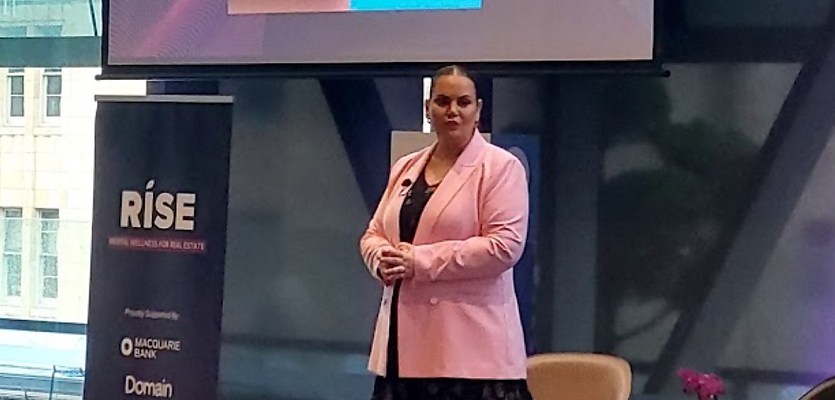“Self-worth is your decision. It’s not a group decision,” the tennis champion counselled real estate professionals.
Speaking to a group of over 120 industry leaders assembled in Sydney at the Rise Initiative Leadership Advance conference, Jelena Dokic recounted firsthand how she learnt to embrace vulnerability to find the strength to put her safety first.
In the height of her tennis career, reaching world number four on the Women’s Tennis Association rankings, no one would have hesitated to describe the athlete as strong. But what the world didn’t know is that Dokic was experiencing physical and mental abuse at the hands of her father, who also served as her coach, which she felt compelled to keep hidden. Her mental health was suffering, and she had long been struggling with disordered eating.
In her position in the spotlight, Dokic explained to the audience how fear of judgement kept her quiet. And while her experience navigating difficult topics as an elite athlete might be fairly unique, the story of pushing past feelings of shame to talk openly and honestly about complex topics found resonance among the audience from an industry where there’s certainly pressure to be always on, projecting an image of perfection.
But Dokic urged those around her to learn from her experience of opening up to discuss issues that can still be regarded as taboo or hard to handle.
“Vulnerability, and shattering the myth of perfection – it is something that actually doesn’t just change lives, it saves lives,” she stressed.
“Vulnerability was always looked at as a weakness; it was almost like it was in a dictionary. Vulnerability equals weakness. Whether it was in sport, whether it was in society, whether it was in different fields and different industries like the real estate industry, vulnerability was always looked at as something weak,” she said of the sentiment of the time.
And while some of that has changed, the biggest change for Dokic has come from inside herself.
“I really discovered the power of resilience and courage through writing my books and through actually finding my voice and speaking up”.
Adding her voice to a growing chorus of public figures prepared to speak about their experiences and tackle difficult discussions was one way Dokic hopes to continue making it easier for people to speak up.
“Let’s be honest, if people talked about mental health, we would often use the word ‘crazy’. If people talked about domestic violence – and women talked about domestic violence – there would be victim blaming.”
She wasn’t prepared to accept those labels.
“I never understood why we didn’t turn that shame and stigma at the feet of abusers and perpetrators and at the people making fun of someone being vulnerable.”
Once a winner on the court, now a champion of mental health, what Dokic hopes to impress on audiences through her public speaking is that it takes true strength to be vulnerable, and it will not only benefit the person opening up, but those around them as well.
Tune out the “outside noise” and trust that you have what it takes, she advised.
“Self-belief is massive. I really believe that you have to really believe in yourself to be able to get through the hardest moments.
“Vulnerability has allowed me to find my voice, it has saved my life.”









You are not authorised to post comments.
Comments will undergo moderation before they get published.